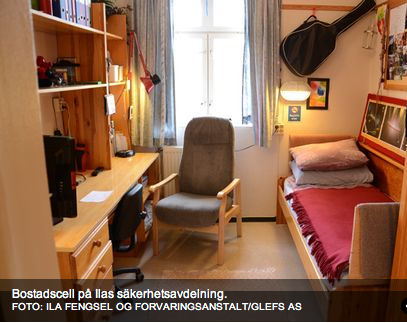Yesterday, Channel 4 News ran an anniversary programme, of sorts:
WikiLeaks founder Julian Assange – hiding for two years in the Ecuadorian embassy – is in “a prison cell with internet access” and “yearns to walk in the fresh air,” says a close friend.
Today, Slavoj Žižek, writing in the Guardian, seems to think that Julian Assange is hiding out in the Ecuador embassy because of something to do with Wikileaks and whistleblowing.
In August 2010, Julian Assange had sex with two women in Sweden. He was, so they both report, aggressive and unpleasant, and very unwilling to use a condom. When they talked to each other and realised he had had unprotected sex against their will with both of them, they went to the police to discover if they could force Assange to take an HIV test – and the police, listening to their account, realised that Assange had by their testimony committed sexual assault and rape.
Until Julian Assange stepped into the Ecuadorean Embassy, nearly two years after the legal due process began in Sweden, he had every element of the justice system due him. He was even on house arrest rather than in prison, in the confidence that he could be trusted with the large amount of money his friends would lose if he skipped bail.
Assange fled to the UK, and appealed against extradition to Sweden for police questioning. (He has not been charged, because Swedish legal procedure is that he would have to be questioned by the police, then charged.) Two years ago today, as the appeals process was about to run out, he stepped into the Ecuadorean embassy in Knightsbridge, and appears likely to stay there until August 2020.
 The usual sentence for rape in Sweden is about 26/27 months. Had Julian Assange accepted in 2012 that he had to be questioned by the police, if they had then charged him, if he had been convicted, if he had been sentenced, he would probably be looking forward to release in two months time.
The usual sentence for rape in Sweden is about 26/27 months. Had Julian Assange accepted in 2012 that he had to be questioned by the police, if they had then charged him, if he had been convicted, if he had been sentenced, he would probably be looking forward to release in two months time.
Most likely, he would already have been out of jail or never gone to jail: the Swedish conviction rate for rape is as low as in the UK, and good behaviour in jail usually earns the prisoner about one-third off his sentence.
 He would not, of course – as anyone acquainted with the facts of US and Swedish law could definitively say – have been extradited to the US. Nor is it very likely that the US could have got hold of him unlawfully if he were sitting under full surveillance in the Swedish prison system. Julian Assange wanted to live and work in Sweden because he had confidence in their legal system to protect him from the US: he fled because he did not want to face trial for rape and sexual assault.
He would not, of course – as anyone acquainted with the facts of US and Swedish law could definitively say – have been extradited to the US. Nor is it very likely that the US could have got hold of him unlawfully if he were sitting under full surveillance in the Swedish prison system. Julian Assange wanted to live and work in Sweden because he had confidence in their legal system to protect him from the US: he fled because he did not want to face trial for rape and sexual assault.
In November 2013, the US formally announced what had been clear for some time: they could not prosecute Julian Assange or Wikileaks for their role in publishing the information leaked by Chelsea Manning, because doing so would require the US government to also prosecute US news organisations, and they are unwilling/unable to do so.
That Assange may remain self-imprisoned in a converted women’s toilet in Knightsbridge until August 2020, and the women who gave testimony in the police in 2010 never get to face him in court, is not justice. Nor has it any connection with free speech or with any campaign against US injustices and war crimes. Assange himself is doing more damage to Wikileaks by this than the US ever could.


“if he had been convicted, if he had been sentenced, he would probably be looking forward to release in two months time”
Unless he was disappeared into America’s worldwide secret gulag, of course. They’ve got Manning, they forced the Bolivian president’s plane to land to try to get Snowden, do you really believe they aren’t after Assange too?
Except that it would be far more difficult – as Assange understood in August 2010 – for the US to extradite JA from Sweden than from, say, the UK. Or indeed Ecuador. If Assange feared most of all being extradited from Sweden to the US, he should have stayed in Sweden.